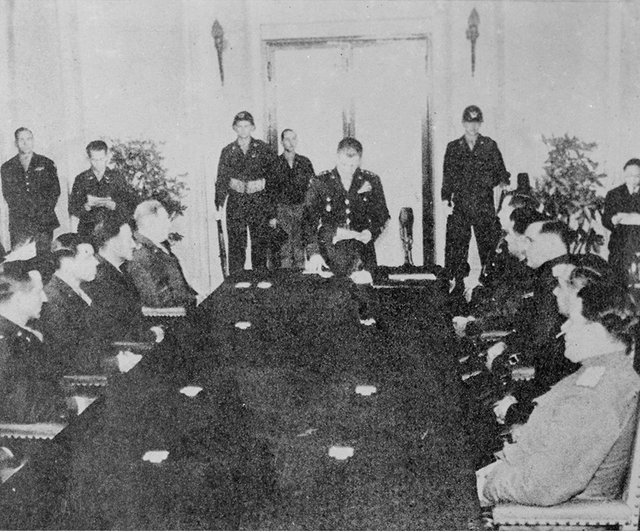Prof. Kathryn Weathersby

In the last post we examined how the United States became increasingly concerned in 1946 about indications that the Soviet Union was attempting to expand the area under its control beyond the boundaries set by allied occupations at the end of the war. The first serious case of this new threat was in Iran, where Soviet forces refused to honor their agreement to withdraw six months after the end of the war.
As soon as Germany invaded the Soviet Union in June 1941, Great Britain embraced its former enemy as an ally, eager for the German army to shift its attack to the East. Then, to be sure the Soviets could carry on this fight, the United States sent it massive quantities of desperately needed weapons and supplies. Some of this war materiel was sent to Soviet ports in the Arctic and the Pacific, but the bulk of it went to Iranian ports on the Persian Gulf, from where it was transported north through Iran to the Soviet Union. Because it was so vital that these supplies reach the Red Army, the three allies made an agreement with Iran that allowed them to station their armed forces along the roads and railroads used for this operation.
A few days after Germany surrendered, the Iranian government formally requested that the allies withdraw these foreign forces and they agreed to do so by March 2, 1946, six months after the surrender of Japan. However, while British and American troops withdrew as promised, Soviet forces did not. Moreover, Moscow continued its efforts to create a communist party organization in northern Iran that would demand autonomy from Teheran and close links to the neighboring Soviet republic of Azerbaijan, which looked like a step toward annexing the area. Iran took the issue of Soviet actions before the United Nations, prompting Secretary of State Byrnes to demand Soviet withdrawal from Iran. President Truman told aides privately that the time had come to find out whether the Russians were “bent on world conquest.”
The next month Iranian Prime Minister Ahmad Qavam reached an agreement with Moscow that gave the Soviets two important concessions in exchange for withdrawing their armed forces. Teheran would grant autonomy to the Azeri populated areas of northern Iran and would create a Soviet-Iranian oil company to jointly exploit the vast oil reserves of northern Iran, similar to the arrangement it had made with Great Britain in 1933.
The crisis was not yet resolved, however. In December 1946, emboldened by the strong diplomatic support it had received from the US, Teheran reneged on its promise of Azeri autonomy. Moreover, it sent troops to suppress the separatist movement, prompting its leaders to flee to the Soviet Union. Finally, in October 1947 Iran repudiated the agreement to create a joint Soviet/Iranian oil company.
Documents obtained from Russian archives in the 1990s revealed that Stalin was, in fact, testing whether the West would resist the extension of Soviet influence into Iran. With British power diminished by the war, the Kremlin saw an opportunity to get economic advantage and political influence in its strategically important southern neighbor. The Truman administration exaggerated the threat, however, fearing that this was a step toward Soviet hegemony in all of southwest Asia. The US therefore responded to Iran’s repudiation by agreeing to provide it with military assistance, which Teheran eagerly accepted.
The new American commitment to Iran was accompanied by similar support for Turkey. The next post will examine how in the wake of the war, Moscow pressured Turkey to allow it to station military forces on the strategically vital Turkish Straits. With Britain no longer able to play its traditional role in the Mediterranean, the United States stepped in with a broad commitment not only to Turkey but to “free peoples” everywhere. This, of course, then shaped its response to the situation in Korea, as well.
[Sources: This post relies on the excellent survey of the early Cold War in William R. Keylor, A World of Nations: The International Order Since 1945 (Oxford University Press, 2009).]
A good work done about the division of Korea with full details. Thanks
Downvoting a post can decrease pending rewards and make it less visible. Common reasons:
Submit
Unpaid related discussions
Related discussions
Interesteem(@interesteem) is a service that recommends related discussions using DeepLearning.
Please writing a discussion with #interesteem tag.
Downvoting a post can decrease pending rewards and make it less visible. Common reasons:
Submit
great and enlightenning work! appreciated!!
Downvoting a post can decrease pending rewards and make it less visible. Common reasons:
Submit